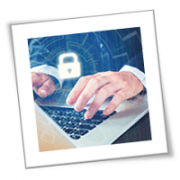An I.T. Manager’s New Year’s Resolution
The beginning of the year is the perfect time to review your systems maintenance program, tweak your plans and processes and optimize your overall I.T. strategy.
Review, Evaluate and Optimize.
More than likely, your business could live or die based on your IT strategy. We have all become dependent on our technology both in our personal and professional lives, so be sure to give it the TLC it needs. Review your key procedures and plans such as network failure testing, disaster recovery, business continuity, virus protection and data backup (for an integrated, online backup, storage and sharing application, click here). For those of you with an on-site backup solution, now is the perfect time to run those backups with a test recovery. With erratic weather on the rise and winter around the corner, taking the time to be sure you have a tight, foolproof strategy in place to keep both your systems and your information protected from loss or damage.
Be Smart About Your Data.
Inadequate protection or spotty management of critical data can have a profound effect on sustainability. Regularly scheduled testing of your backup strategy and implementing a daily backup routine will help prevent the disasters that prove fatal for many companies.
- 31% of PC users have lost all of their files due to events beyond their control.
- 34% of companies fail to test their onsite backup solution, and of those that do, 77% have found back-up failures.
- 60% of companies that lose their data will shut down within 6 months of the disaster.
- Every week 140,000 hard drives crash in the United States.
- Simple drive recovery can cost upwards of $7,500 and success is not guaranteed.
We recommend assessing your existing data protection strategy and learn what data repository and storage medium options are available. It’s important to understand traditional backup methods as well as the benefits of developing an enhanced protection solution that meets the needs of your particular business.
There are lots of people out there determined to infect your computers with viruses. Optimize your security with new or updated anti-virus, Spyware and Malware software. Be wary of free anti-virus software that sounds too good to be true because it often is. You get what you pay for, and software that protects your computer needs regular and consistent updating to stay useful because viruses are constantly being generated. This is especially important if you use a networked computer system. Do your homework, invest in effective software and keep it updated. (For an easy-to-use, simple, and effective anti-malware application, try Malwarebytes)
Email – a Blessing or a Burden?
Most of us are guilty of being slaves to our inbox, whether we like to admit it or not. We keep every thing that has ever been sent to us out of some sort of unfounded fear of not having it should we ever need it. And the “reply all” function makes it exponentially worse. Well, each of those emails, particularly the ones with large attachments, take up space on your computer – and space in your head when you are actually trying to find something. Email is the third largest culprit of workplace interruptions and email mismanagement costs you money. Take charge and clean up that clutter by creating folders and subfolders to organize your communications. Save the attachments that you will need later onto your hard drive in a logical place, then delete the email if its unnecessary. Set your computer to delete your Trash after 30 days. Anything you can think of to reduce the number of emails in your actual inbox will save you time and money down the road.
GCInfotech can get you started on the path to a leaner, more efficient IT strategy. If you don’t have an IT Manager to make a New Year’s Resolution for you, then give us a call.



